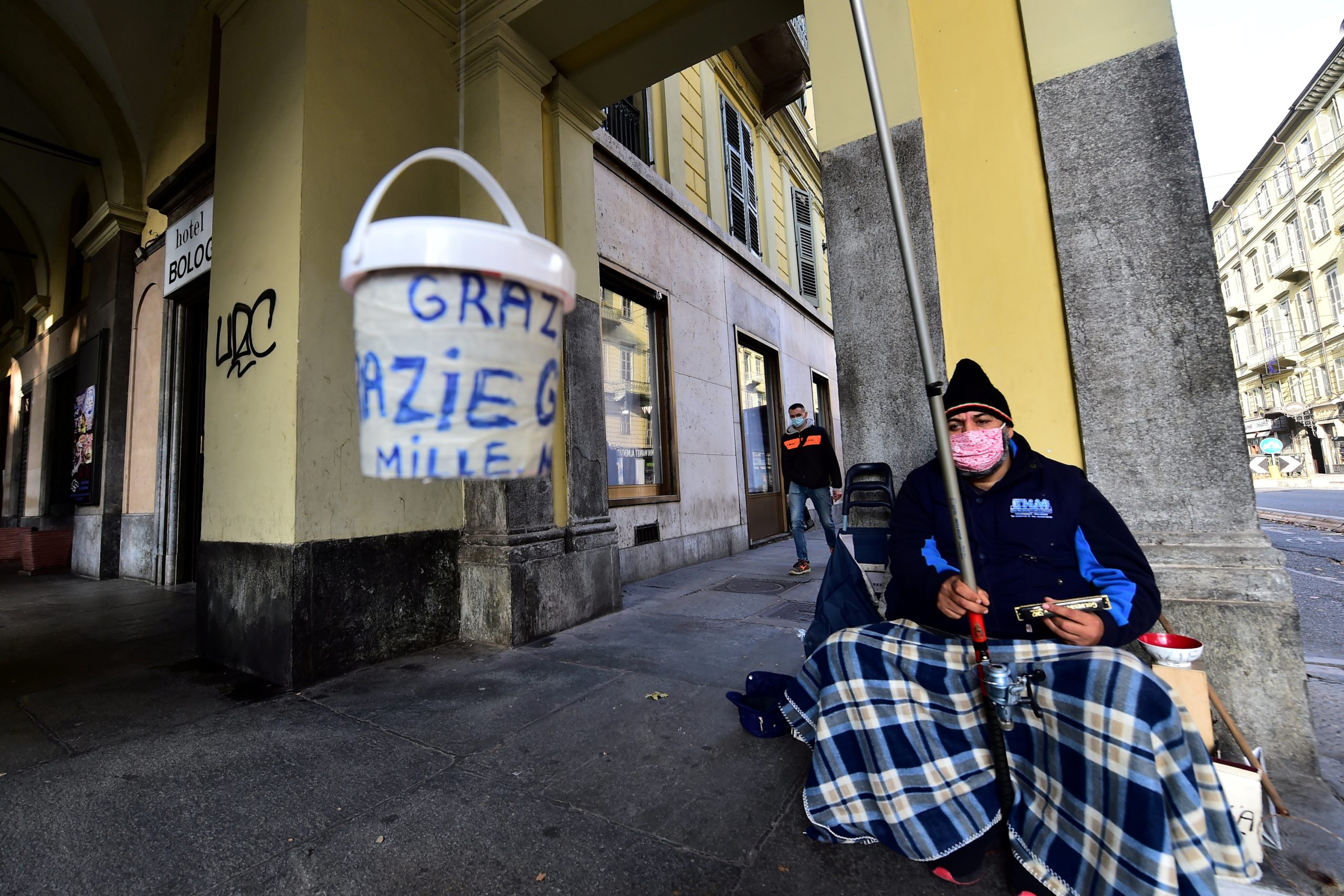TURIN, Italy (CNS) — Giving some money or a blanket or a sandwich to a homeless person is a good and laudable thing, but a Christian who considers the beggar a brother or sister will do more, said Archbishop Cesare Nosiglia of Turin.
“Solidarity is not a coin tossed” toward an outstretched hand, he said. “While no one questions the value and meaning of almsgiving, it is also true that this gesture alone is not enough; it does not ‘put right’ any individual conscience or civic responsibility.”
As winter settled on the northern Italian city, the archbishop issued a statement Jan. 28 urging the people of Turin to see each homeless person as a brother or sister and to think about the larger implications of having so many people living on the freezing streets amid a pandemic.
And while local newspapers were publishing a variety of articles about whether people should give money to folks living on the street, the archbishop called for a broader look at the question and real efforts to create “a more humane community.”
As the coronavirus pandemic continues, he said, everyone must recognize that in addition to the homeless, there are many elderly people suffering from solitude and unable or afraid to leave their homes, as well as “single-income families with no means of subsistence, people who have lost their jobs overnight. And every day we hear other news of other people in difficulty, of ‘categories’ that have been overlooked by measures and aid.”
In the midst of COVID-19, he said, “the contagious evil to which we are exposed is indifference, the thought that ‘it doesn’t concern us.'”
And, certainly, he said, city officials and citizens alike should be concerned about the “decorum of the city,” but that always must be weighed against “people’s objective conditions of poverty and insecurity,” so that the measures to be taken offer real and lasting help rather than simply forcing the poor to move on.
The city government does not bear the full responsibility for addressing the situation, the archbishop said. “The brother who sleeps in a cardboard box on Via Roma needs, first of all, to be considered a brother, and therefore to receive the attention of a heart that is open to promoting paths before imposing solutions.”
“The most fragile people need to be accompanied as they learn to make mature choices, to glimpse what is truly good for them and to feel part of the city,” not outsiders, he said. “Certainly, Turin will not withdraw the silent hand of fraternal help, but it is necessary that this hand moves with an intelligent heart, helping people free themselves from the impossibility of solving their problems.”
In addition to responding to immediate requests and needs, the archbishop said, people should take the time to let the homeless know of the services available to them and to offer them hope.
Listening to them, initiating “even a small but effective relationship,” fighting one’s own prejudice and acting as a true neighbor “are the commitments we must make in our relationships with them,” Archbishop Nosiglia said.







